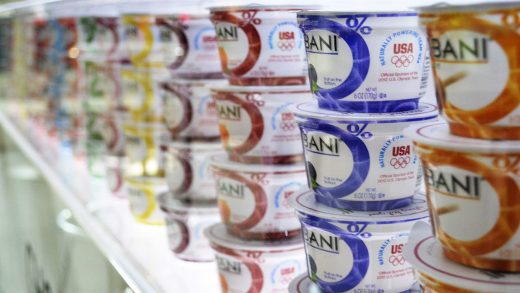The Business Strategy Behind Chobani’s Generosity
Late last month, the yogurt company Chobani surprised many when its founder, Hamdi Ulukaya, announced that he would give some of his own portion of the company to the very employees who helped build it. The employees were given what were called “Chobani Shares,” worth up to 10% of the company, which could be transferred to stock or cash in the event of going public or a sale. The CEO told the New York Times that he felt indebted to the people who helped build the company. “Now they’ll be working to build the company even more,” he said to the Times, “and building their future at the same time.”

While offering stock in an early stage company isn’t unheard of—especially when trying lure top tech talent—it is unusual for one that is already highly valued. And Chobani is just that; two years ago the yogurt juggernaut was valued at around $3 billion. With business still booming and over 2,000 employees, it can only be worth more now. The Times, looking at past financial analyses and presentations, deemed the company to be worth “several billion dollars” today, meaning the average employee payout could be worth $150,000. Given that the amount of shares received is based on employee tenure, some Chobani workers could be getting a lot more than that. Of course, this value is dependent on future company performance, so these numbers could fluctuate.
Chobani’s move is definitely a rare one, but there are a few others out there offering more progressive benefits to their employees, and there may be a sound business argument for doing so. According to a few of the companies who are offering these above and beyond benefits, this is a long-term strategy.
One company that’s been focusing on giving back to its employees is Asana, an enterprise software firm. The company has launched a program that gives employees various health, wellness, and mindfulness services. These include free gym memberships, professional coaching sessions, and access to an in-house nutritionist.
The company writes on its website that its “shared mission and values” will lead to a “thriving culture and a more successful business.” While it’s true that every startup takes great pains to highlight a healthy and innovative work culture, Asana posits that its focus on mindfulness and in-house counseling makes the startup different. And according to the company, this has led to successful results. “We also have an extremely low attrition rate relative to other companies at our stage,” a spokesperson wrote to Fast Company.
Starbucks is another company that’s been offering more innovative perks. For decades the coffee chain has been offering health benefits to even its part-time workers. It too gave employees shares of the companies, in a program it calls “bean stock.” When asked about this program, the company says that its employees—or “partners,” as Starbucks calls them—have received over $1 billion in returns.

More recently, Starbucks has also focused on offering higher education as a benefit. In a partnership with Arizona State University, employees are able to earn their bachelor’s degree from the school with Starbucks footing the bill. The plan, says Starbucks, is to get at least 25,000 of its employees in the program by 2025. According to Starbucks, this will amount to a $250 million investment.
Related: Why It’s Worth It For Jet Blue And Starbucks To Pay For Employees’ College Education
Already the company is seeing this as helpful leverage for recruitment. For example, 60% of Starbucks’s new hires inquire about the college program. Furthermore, those enrolled have a promotion rate that is four times faster than Starbucks’s “core store population.” Perhaps least surprising is that the employees getting their bachelors for free are staying with the company. According to Starbucks, these workers have double the retention rate than the rest of their employees.
Of course there are many other companies offering similarly progressive programs. Pinterest, for one, is exceptionally liberal when it comes to parental leave. It gives employees four months of paid paternity leave as well as an additional one to ease them back into the workflow where they’re only expected to come to work once a week.

Perhaps most similar to Chobani is natural food supplier Bob’s Red Mill. In 2010, the company announced that it too would be giving its employees stock. At the time, it was said to be valued at $70 million. Less than two years later that estimated valuation went up to $110 million. Bob’s hasn’t discussed the results the stock program had on its employees, but surely it didn’t hurt things. As founder Bob Moore told Inc., “I just can’t envision the company in any better hands than those of the workers and management we have now.”
While companies like Bob’s and Chobani make their move seem almost moral or altruistic, there’s definitely more to it than that. Most Chobani employees likely don’t have plans to leave anytime soon.
Fast Company , Read Full Story
(14)













